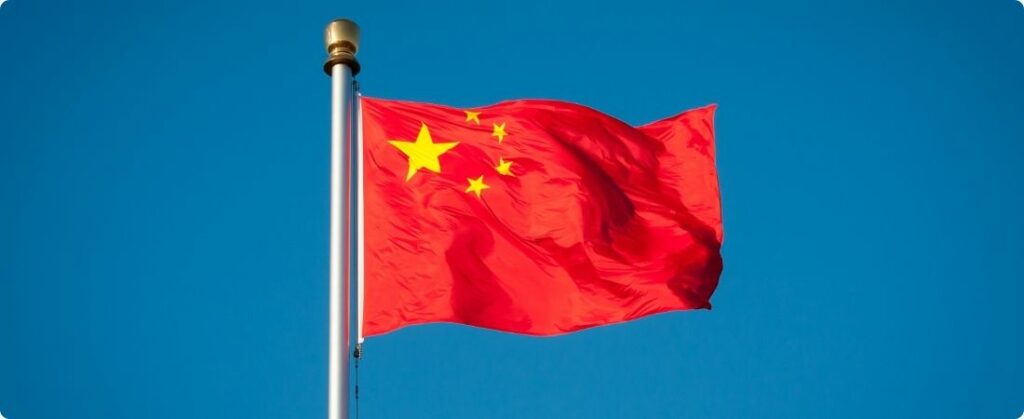
China on Friday raised its tariffs on US imports to 125%, retaliating against the US president's decision, Donald Trump, raising tariffs on Chinese goods to 145% and ratcheting up the stakes in a trade war that threatens to disrupt global supply chains.
Meanwhile, the turmoil triggered by Trump's tariffs showed little sign of abating on Friday, with markets falling and foreign leaders wondering how to respond to the biggest disruption to the global trading order in decades.
A brief reprieve for stocks after Trump decided to pause tariffs on dozens of countries for 90 days quickly dissipated as attention turned to an escalating trade war with China, which was fueling fears of a global recession.
Global stocks fell, the dollar fell and selling of U.S. government bonds accelerated on Friday, rekindling fears of fragility in the world's biggest bond market. Gold, a haven for investors in times of crisis, hit record highs.
“The risk of recession is much, much higher now than it was a few weeks ago,” said Adam Hetts, global head of multi-asset at Janus Henderson.
U.S. Treasury Secretary Scott Bessent sought to calm skeptics, telling a cabinet meeting on Thursday that more than 75 countries want to start trade talks. Trump himself has expressed hope for a deal with China, the world's second-largest economy.
But the uncertainty in the meantime has amplified some of the most volatile trading since the early days of the Covid-19 pandemic.
International reactions and new movements
Meanwhile, Asian indexes mostly followed Wall Street’s decline. In Europe, on the other hand, China’s latest tariff hike sent stocks tumbling, leaving the STOXX 600 down more than 1% on the day and on track for further losses in what will be one of the most volatile weeks on record.
Despite that, Bessent shrugged off the new market turmoil on Thursday and said reaching agreements with other countries would bring certainty.
Meanwhile, the US and Vietnam have agreed to start formal trade talks, the White House said. In the context, the Southeast Asian manufacturing hub is prepared to crack down on Chinese products. The measure applies to items shipped to the United States through its territory in an attempt to avoid tariffs, according to Reuters, in an exclusive report.
Meanwhile, Japanese Prime Minister Shigeru Ishiba has created a trade task force that is expected to visit Washington next week.
Agreement with China?
As Trump abruptly suspended his “reciprocal” tariffs on other countries hours after they went into effect this week, he has increased tariffs on Chinese imports as punishment for Beijing’s initial retaliatory move. He has already imposed new tariffs on 1,451,000 Chinese goods since taking office, a White House official said.
China retaliated with new levies on Friday.
“The US imposition of abnormally high tariffs on China seriously violates international trade and economic rules. It also violates basic economic laws and common sense. Furthermore, it represents a completely unilateral intimidation and coercion,” China’s Ministry of Finance said in a statement.
Trump told reporters at the White House on Thursday that he thinks the United States could make a deal with China, and said he respects Chinese President Xi Jinping.
“In a real sense, he’s been my friend for a long time, and I think we’ll end up working on something that’s very good for both countries,” he said.
Xi defends alliance with EU against US tariffs
Xi made his first public comments on Trump's tariffs on Friday. During a meeting in Beijing with Spanish Prime Minister Pedro Sánchez, the Chinese leader said that China and the European Union should "jointly oppose unilateral acts of intimidation." The statement was reported by China's state-run Xinhua news agency.
“There are no winners in a trade war,” the Chinese leader told his guest. He added that by acting together, the world’s second-largest economy and the 27-nation European trading bloc could act more forcefully. Together, they could help maintain “the rules-based global order.”
European authorities estimate that the impact of US tariffs on the region’s economy will be 0.5% to 1.0% of GDP. The EU economy as a whole is expected to grow by 0.9% this year, according to the European Central Bank. US tariffs, however, could push the EU into recession.
Source: Joe Cash, Jan Strupczewski and Jeff Mason | Notícias Agrícolas















